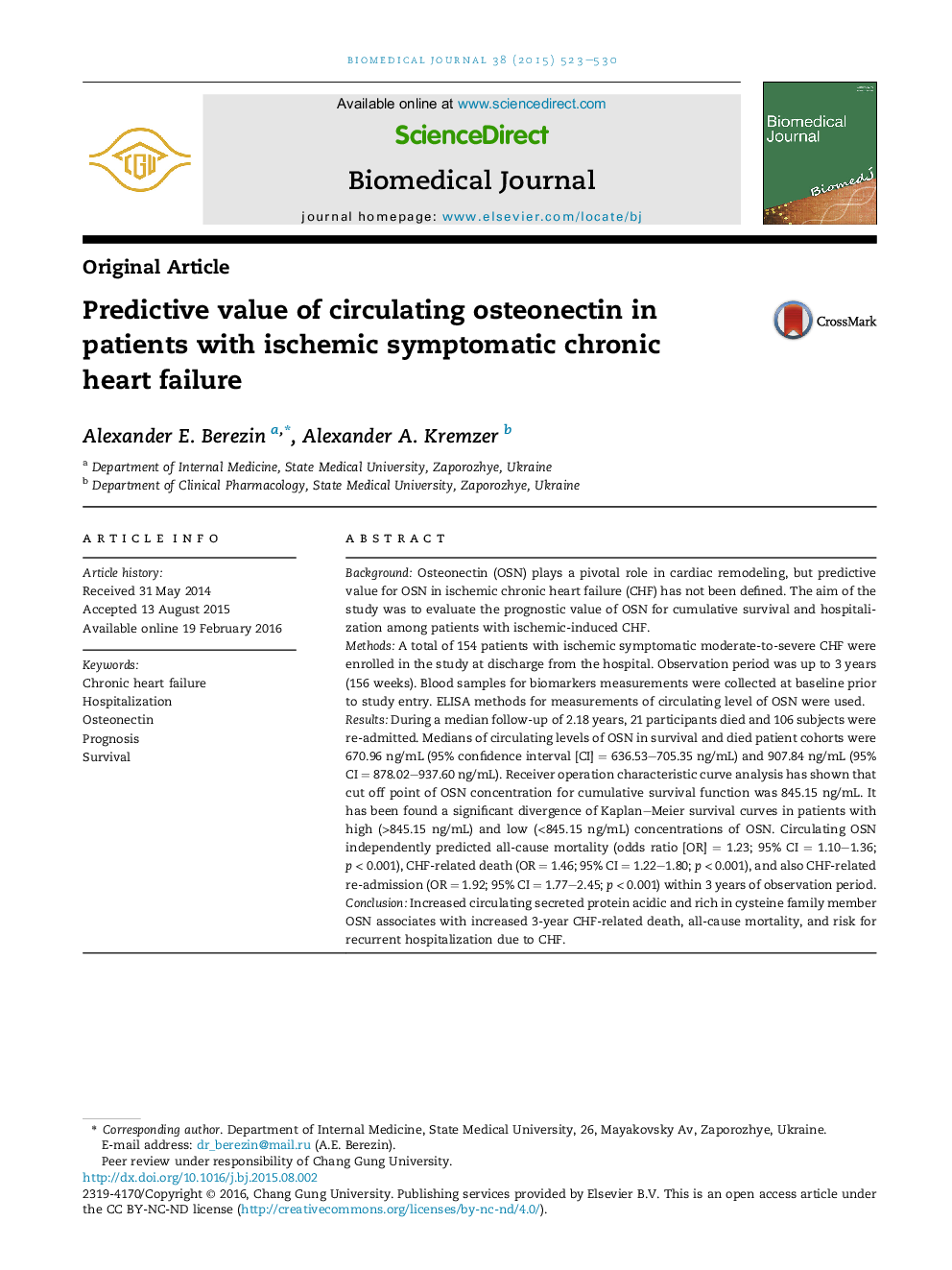| Article ID | Journal | Published Year | Pages | File Type |
|---|---|---|---|---|
| 2106081 | Biomedical Journal | 2015 | 8 Pages |
BackgroundOsteonectin (OSN) plays a pivotal role in cardiac remodeling, but predictive value for OSN in ischemic chronic heart failure (CHF) has not been defined. The aim of the study was to evaluate the prognostic value of OSN for cumulative survival and hospitalization among patients with ischemic-induced CHF.MethodsA total of 154 patients with ischemic symptomatic moderate-to-severe CHF were enrolled in the study at discharge from the hospital. Observation period was up to 3 years (156 weeks). Blood samples for biomarkers measurements were collected at baseline prior to study entry. ELISA methods for measurements of circulating level of OSN were used.ResultsDuring a median follow-up of 2.18 years, 21 participants died and 106 subjects were re-admitted. Medians of circulating levels of OSN in survival and died patient cohorts were 670.96 ng/mL (95% confidence interval [CI] = 636.53–705.35 ng/mL) and 907.84 ng/mL (95% CI = 878.02–937.60 ng/mL). Receiver operation characteristic curve analysis has shown that cut off point of OSN concentration for cumulative survival function was 845.15 ng/mL. It has been found a significant divergence of Kaplan–Meier survival curves in patients with high (>845.15 ng/mL) and low (<845.15 ng/mL) concentrations of OSN. Circulating OSN independently predicted all-cause mortality (odds ratio [OR] = 1.23; 95% CI = 1.10–1.36; p < 0.001), CHF-related death (OR = 1.46; 95% CI = 1.22–1.80; p < 0.001), and also CHF-related re-admission (OR = 1.92; 95% CI = 1.77–2.45; p < 0.001) within 3 years of observation period.ConclusionIncreased circulating secreted protein acidic and rich in cysteine family member OSN associates with increased 3-year CHF-related death, all-cause mortality, and risk for recurrent hospitalization due to CHF.
